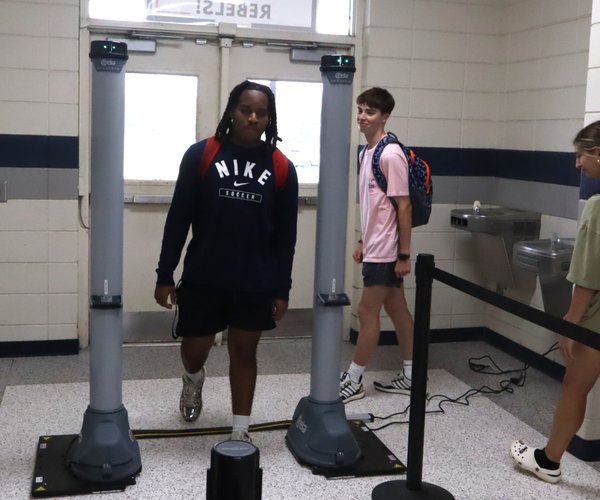Effingham County commissioners have sent a letter to Guyton Mayor Michael Garvin, expressing their desire to work with the city on wastewater treatment issues.
Only 10 percent of the county’s 1 million gallon per day wastewater treatment facility is being used, and commissioners wrote to Garvin that they could easily reserve the 500,000 gallons a day Guyton has planned for its sewage treatment plant.
“In light of the recent construction slow downs, we anticipate capacity availability for quite some time in the future,” commission Chairman Dusty Zeigler wrote. “We feel very comfortable and confident with our ability to meet Guyton’s wastewater capacity needs.”
The county has started plans to expand its treatment plant to 2.5 million gallons per day. The land where the county’s plant is can accommodate a 20 million GPD facility.
The county also has a spray field permit for up to 250,000 gallons a day. “In addition, reuse customers can receive just as much as they can use,” Zeigler wrote. “Moving forward, we anticipate an increased demand in reuse water as all new developments and industry consumption will continue to increase.”
Zeigler’s letter was in response to a March 5 letter from Garvin, and he explained the county’s position on user and impact fees. Zeigler said the county does not charge fees to generate revenue but rather to assure customers pay a proportionate share of the cost of building the county’s water reclamation facility.
“Simply put, fees are used to repay GEFA (Georgia Environmental Facilities Authority) loans,” the chairman wrote. “We aim to make these fees transparent and balanced to everyone.”
Guyton has received a $13.3 million loan from GEFA for its wastewater treatment plant, but many Guyton residents have questioned how the city can pay that loan back.
In his letter, Zeigler spelled out the county’s sewer impact and reuse capital recovery fees, which total $4,600 for one equivalent residential unit. Since Guyton would build its own conveyance pipeline, its share per ERU would be $3,200.
Currently, Guyton’s sewer needs are at 90,000 gallons per day. According to the county’s calculations, that would be $960,000 in county impact fees. With a projection of another 600 ERUs at $3,200 each, the total county impact fee would be $2.88 million.
In citing Garvin’s letter, Zeigler said the city would expect to get $3.48 million in tap fees from 600 ERUs, giving Guyton $600,000 it could apply to debt service on its sewer pipeline.
Zeigler also said the county “is willing to be diligent and creative with all ideas. … Maybe there exists a possible solution based on prorating the fees for Guyton’s existing customers over the same time span as it takes for the new six hundred in-city users to connect.”
Zeigler also contended that it is difficult for the county to accept ad valorem tax payments in lieu of impact fees as it tries to meet its own GEFA obligations and said Guyton residents would not be paying double for the county’s sewer system.
County staff prepared a memo in July 2007 for Guyton on taking the city’s wastewater treatment needs and the county estimates the cost of a force main to connect Guyton to the county plant would cost $2.7 million. In addition to the $2.88 million in impact fees, Zeigler said, the cost for Guyton to partner with the county would be less than $5.6 million.
“It is our belief that this proposal is a wastewater partnership solution that is mutually in the best interests of Guyton and Effingham County residents,” the chairman said, “and that it is a partnership that will solve the needs of the entire county. For the sake of not being local competitors with one another and even for the sake of consolidating efforts in an unfavorable economy, surely it would be best to form a partnership.”
Guyton council members did not discuss the letter at their brief meeting Tuesday morning but may have it on their agenda for their first meeting in April.
Guyton interim city manager Randy Alexander said representatives from the city and county have not met since February.
Zeigler also sent a letter to state Rep. Jon Burns, expressing the commissioners’ opposition to Guyton’s annexation plans. In that letter, the chairman stated that the original Guyton annexation would create R-1 zoning for parcels not owned by the city and those would fall into the county’s service delivery area.
Though Guyton amended its request to annex only those tracts it has purchased for its planned wastewater treatment plant, the county still has reservations.
“There remain concerns about this move if the wastewater treatment plant does not become a reality,” Zeigler wrote. “In effect, the city would be left with an island almost one mile from the center of town, or at least more than 300 yards from the city’s outer reaches.”
Commissioners said they would be more comfortable if Guyton’s plans for the tract to be annexed were solely for the sewage treatment plant.








